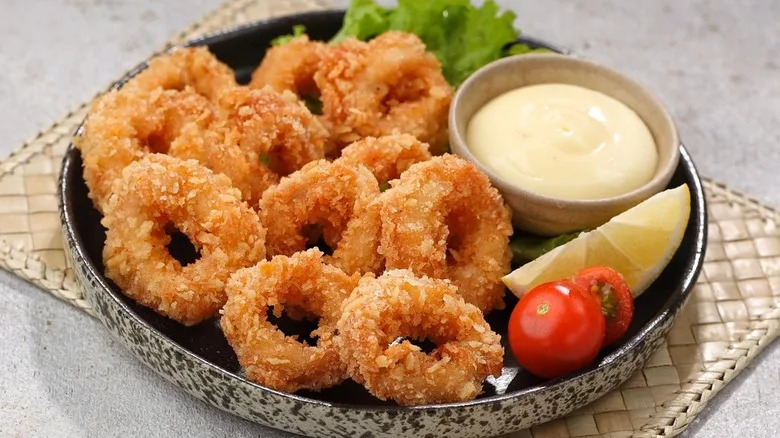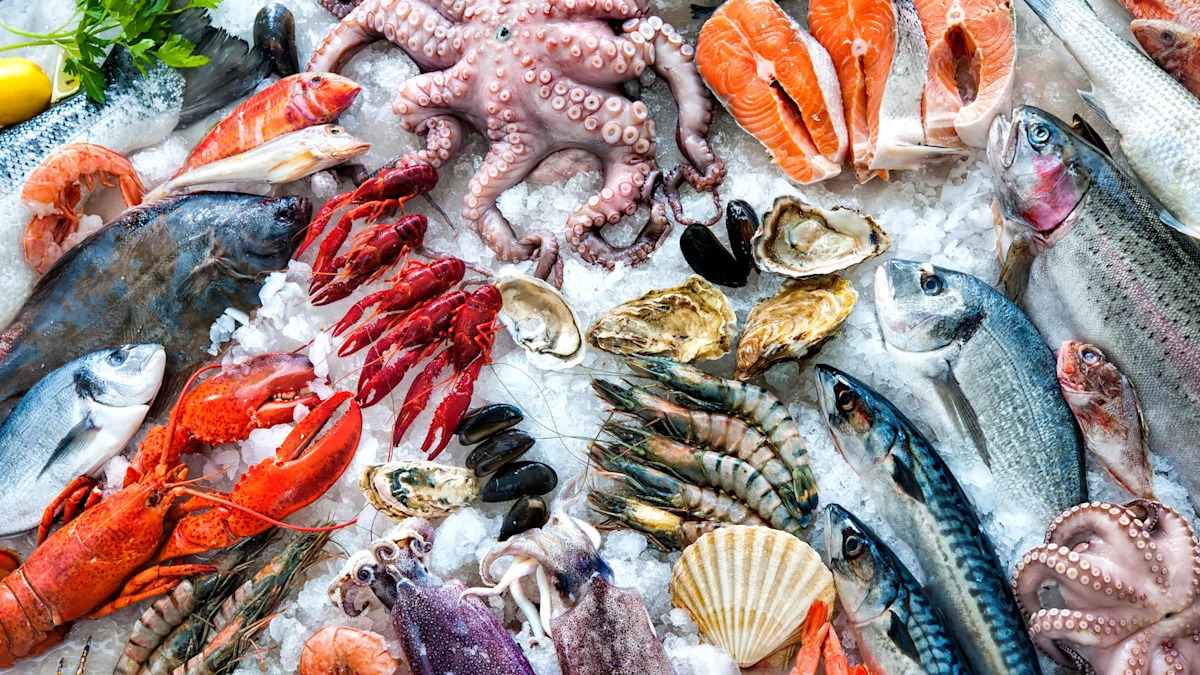We live in an age where you can’t scroll, snack, stretch, or step within five feet of a gym without someone saying the word protein. It’s at the center of every fitness conversation. It’s the buzzword on all snack bar wrappers. And it’s the cornerstone of diet plans being typed up across the world. In fact, a conversation about protein is the only time no one cares what came first, the chicken or the egg, as long as both make it to the plate. But in all this chatter, usually involving lean meats, dairy, and supplements, one high-protein, low-mercury option keeps getting overlooked: squid.
You’re not alone in ignoring squid (or calamari, which is specifically squid that’s been prepared for cooking). While there are few things better on a sunny day at the beach than a plate of crispy and crunchy fried calamari, the data shows that squid is far from America’s favorite seafood. According to a 2023 survey, shrimp, cod, and salmon predictably made up the top three, while squid wasn’t even in the top 10. It even came in at an unflattering 18th in our ranking of 26 types of seafood consumed in the U.S. In terms of health and fitness goals, it’s clearly the seafood staple that America is sleeping on.
Read more: The Most Popular Cuts Of Steak Ranked Worst To Best
Squid Is Nutrient-Rich And Sustainable
fried calamari – Nunung Noor Aisyah/Shutterstock
Like most seafood, squid is a rich source of protein. A 4-ounce serving of raw squid packs 18 grams of protein and just 2 grams of fat. Compared to other popular seafood like shark and tuna, squid is low in mercury. It’s also rich in Omega-3s, collagen, and essential micronutrients like iodine, selenium, and zinc. In fact, the U.S. Food & Drug Administration specifically recommends low-mercury seafood like squid as part of a healthy diet, especially for pregnant women.
Squid’s abundance makes it an even more compelling choice as a protein source. While there are many simple ways to add a protein boost to your favorite meals, the actual sources remain narrow, with beef, chicken, pork, fish, dairy, and eggs making up a majority of Americans’ protein intake. While this lack of diversity poses obvious ecological concerns, squid offers a compelling alternative: it’s abundant on both the coasts, the Marine Stewardship Council believes it can be farmed sustainably, and it is naturally resilient. It reproduces quickly, produces little bycatch, and even thrives as oceans warm.
Read the original article on Tasting Table.

